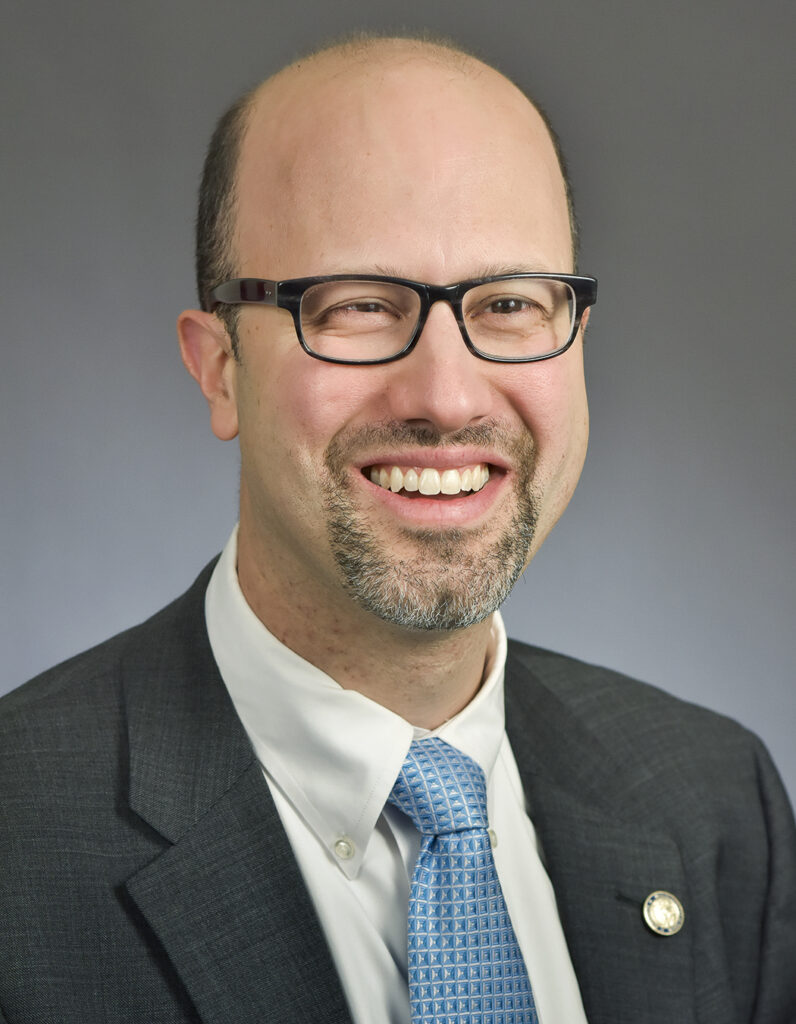House Children & Family Finance and Policy meets to discuss middle-class childcare affordability
By: Cirien Saadeh
The House Children and Family Finance and Policy Committee convened on Nov. 13, 2023 to discuss challenges related to childcare affordability for middle-class families across the State of Minnesota.
The two-hour meeting began with testimony from parents and childcare providers from across the state; and it was followed by a presentation from Suzanne Pearl, Minnesota Director for First Children’s Finance; and a legislative proposal from Rep. Carlie Kotyza-Witthuhn (DFL – Eden Prairie).
“We had discussed in the spring that early care and learning is a crisis throughout the state. We’re going to hear more about the ways that it has been a crisis for families in terms of being able to afford and access those services. We’re also going to talk a little bit later about what a squeeze it is for people providing this most critical service in our society,” said Rep. Dave Pinto (DFL – Saint Paul), the Committee Chair.

According to Pearl, who presented at the committee hearing, child care affordability is a big issue for Minnesota parents and for child care providers.
“Child care is a broken business model. There’s a disconnect there. Families cannot afford child care. We hear that time and again. Child care businesses, however, have narrow profit margins,” said Pearl. “By and large child care businesses operate on paper thin margins. At the same time child care workers are among the lowest-paid in Minnesota’s workforce.”
Pearl is the Minnesota Director for First Children’s Finance, a Minnesota-founded and headquartered national nonprofit and Community Development Financial Institution.
The Federal Department of Health and Human Services recommends that US families pay no more than 7% of their annualized income for childcare – whether at family childcare or throughout childcare centers.
However, according to Pearl, using data from the Economic Policy Institute, Minnesotans are paying an average of 21% of their annualized family income just for infant care.
“You’d have to go all the way up to $297,000 for a family to not spend more than 7% of their income in a rural area. It’s $340,000 annually in the urban areas. And those numbers, Minnesotans don’t make that much money,” said Rep. Kotyza-Witthuhn.
The UpTake has not independently fact-checked the numbers shared by Rep. Kotyza-Witthuhn.
Many parent-testifiers called on legislators to invest in public funding for childcare.
“I have an extremely smart 3-year old daughter. I blame it on her early childcare center,” said Brittany Kjenaas, a parent from Northern Minnesota, who says she drives 15 miles each way to drop her child off to a quality daycare.
Kjenaas shared in the committee hearing that she and her husband have chosen not to have a second child because of the cost of childcare, and she spoke about the impacts of the lack of public funding for childcare for middle-class families like hers.
“We pay more for childcare than we do our mortgage and there’s no way we could double that and still afford to live,” said Kjenaas, who argued that public funding would allow her family “to make choices again, to buy healthy food at the grocery store instead of prepackaged stuff, we’d have time to make healthy meals because my husband wouldn’t have to work overtime to play catch-up on our bills, we’d have more time with our daughter.”
Outside of costs for families attempting to afford childcare, legislators and testifiers also talked about the challenges faced by childcare providers in providing affordable childcare.
“We see what a difference [quality childcare] makes in the lives of our children and their families, but providing high-quality child care is incredibly expensive,” said Shawntel Gruba, a childcare center owner from the Iron Range. “Everytime we raise rates, we lose families because they have to weigh the costs.”
Legislators discussed the costs of childcare for infant, toddler, and pre-school-aged children, and the impacts of enacted legislation, providing free voluntary pre-kindergarten to Minnesota children.
“The growth of the voluntary preschool program is a concern. It is definitely a concern within the provider community,” said Pearl.
Pearl also noted that First Children’s Finance provides both loans and development support to childcare businesses, because it can otherwise be very challenging for them to access funding from traditional banks.
Following Pearl’s testimony and follow-up discussion, legislators discussed a bicameral proposal from Rep. Kotyza-Witthuhn and Sen. Grant Hauschild (DFL – Hermantown). The proposed Great Start Affordability Program is meant to reimagine a proposal that failed to make it to law during the last legislative session.
“This is an alternative way in lieu of a tax credit to get much needed dollars back in the hands of Minnesota families and address the costs of childcare. Great Start Affordability subsidies are designed on a sliding scale in terms of annualized income and number and age of children,” said Rep. Kotyza-Witthuhn. The proposal put forth by Rep. Kotyza-Witthuhn and Sen. Hauschild is not yet a bill and a vote could not be taken on the proposal until the legislative session begins in Feb. 2024. Additional details on the proposed legislation are still being hammered out.
Several legislators shared that the cost of childcare is one of the top issues, if not the top issue, that they hear from voters in their district and they noted that childcare is also a workforce issue for both employers and potential employees who may not enter the workforce or change jobs due to challenges with childcare affordability. Both DFL and Republican legislators also discussed the reasons behind childcare costs and they specifically named the costs of mandates and statutes, as well as inefficiencies in state law, as something to consider during this upcoming legislative session.
No official action was taken at the meeting and Rep. Pinto concluded the meeting by noting that the supplemental budget forecast, to be shared later this year, will influence the work of the 2024 legislative session and that childcare affordability will be a priority during the upcoming session.
